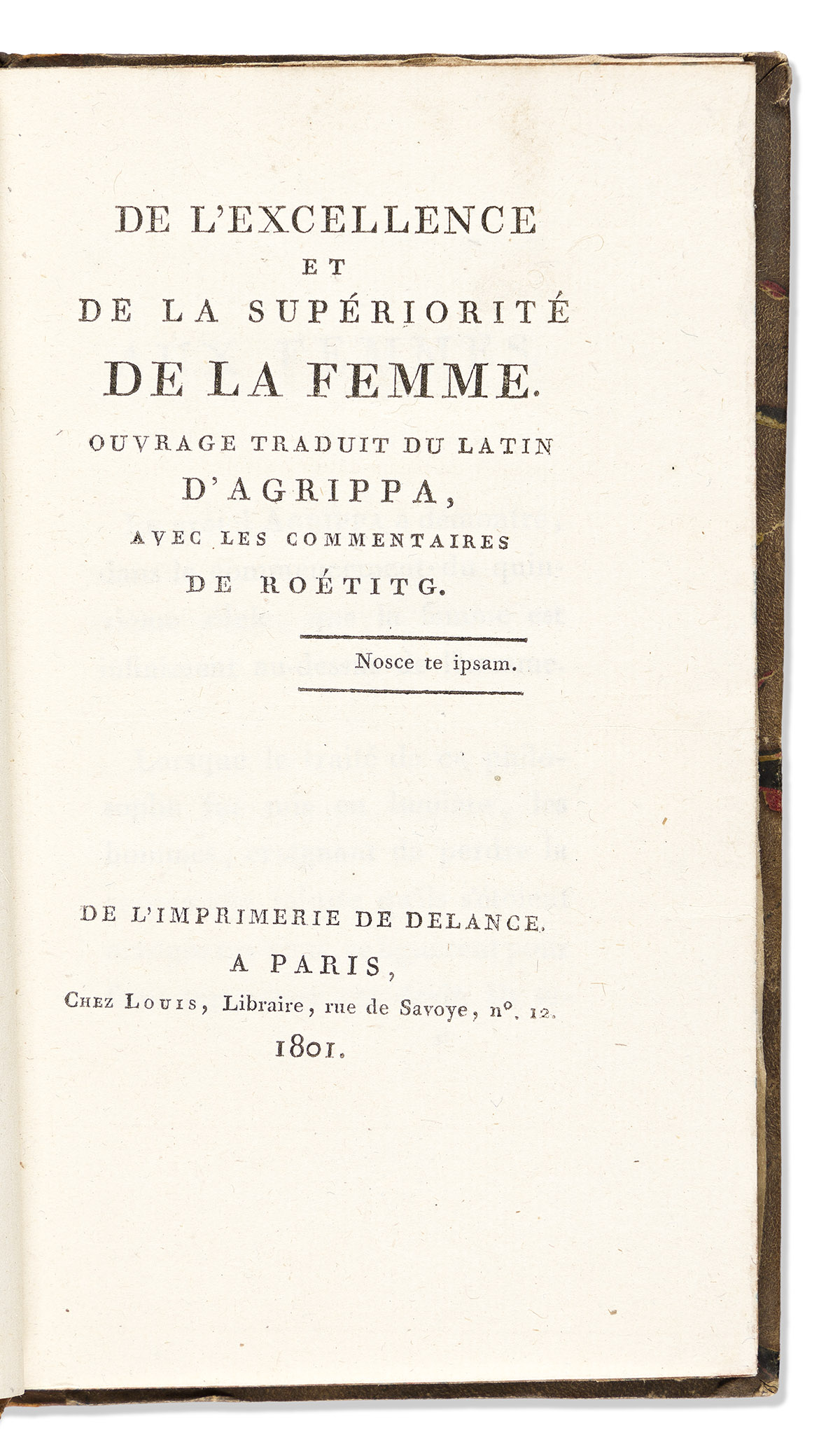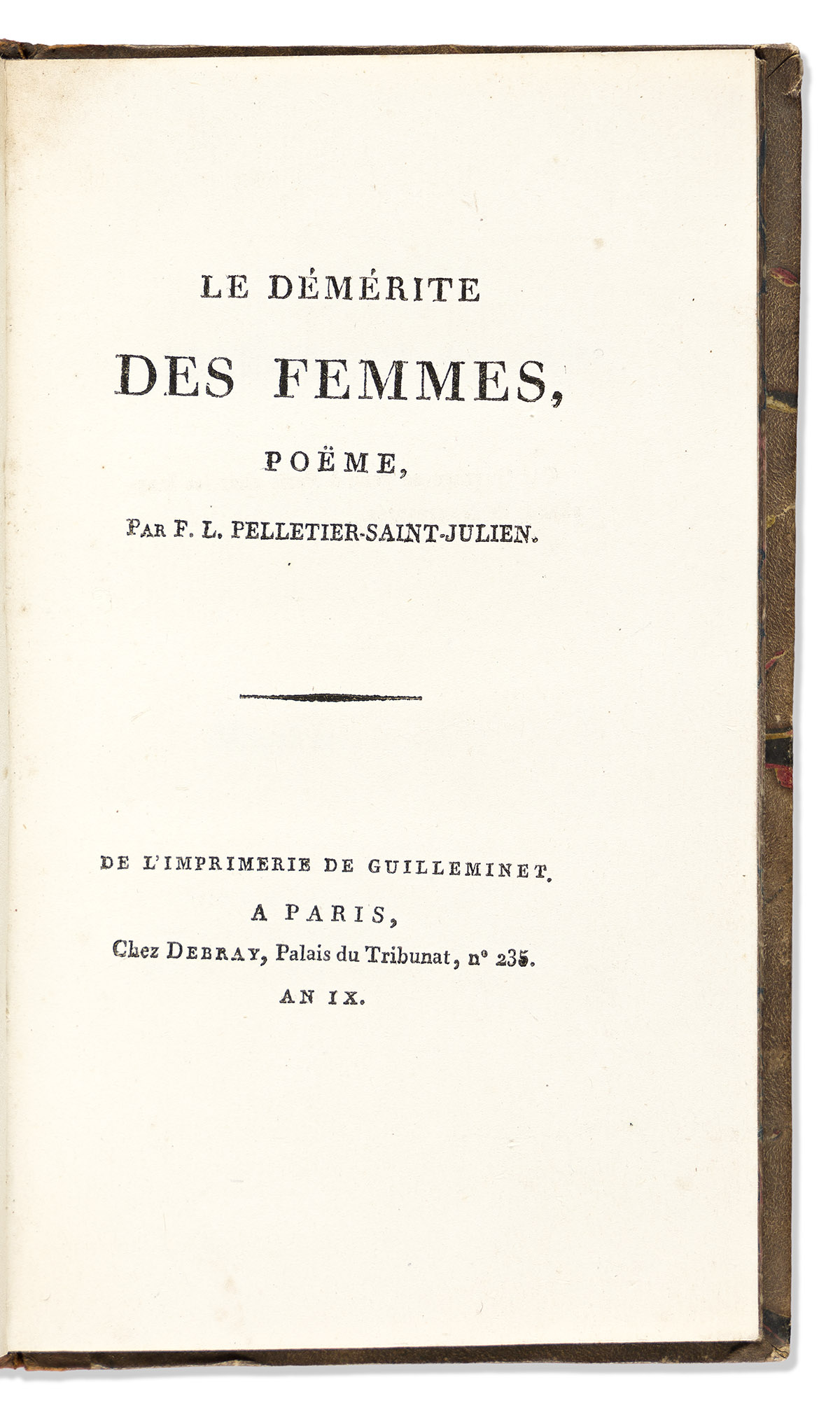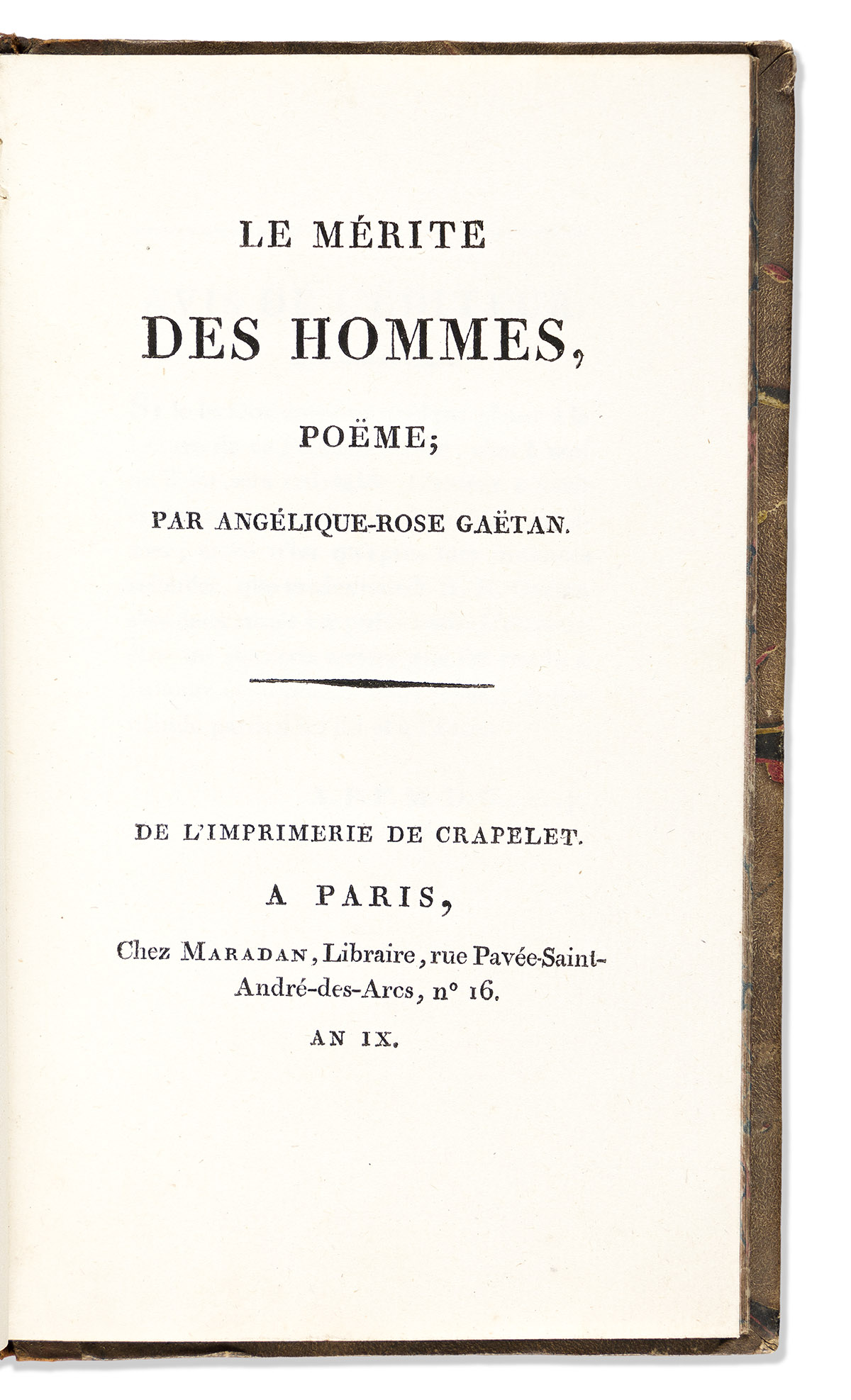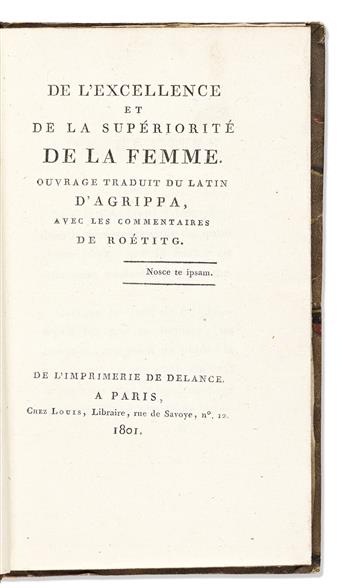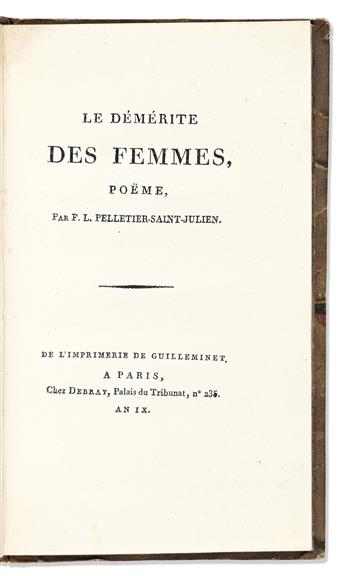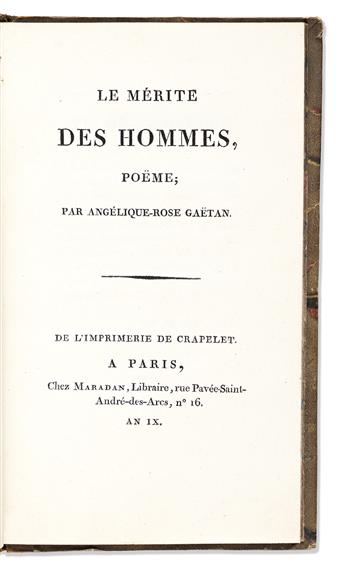Sale 2639 - Lot 86
Unsold
Estimate: $ 250 - $ 350
Agrippa, Heinrich Cornelius (1486-1535)
De L'Excellence et de la Superiorite de la Femme.
Paris: de l'imprimerie de Delance, Chez Louis, 1801.
[bound with] F. L. Pelletier-Saint Julien's Le Démérite des Femmes, Poëme, Paris: Imprimerie de Guilleminet Chez Debray, An IX; [and] Angélique-Rose Gaëtan's La Mérite des Hommes, Poëme, Paris: Imprimerie de Crapelet chez Maradan, An IX.
Three octavo volumes bound as one, the first title translated from Latin to French by François Peyrard (1760-1822) under the pseudonym Roétitg; the Agrippa with Peyrard's commentary removed (pages 103-120, stubs present between the end of the text and the first page of the table) half-title present in each, bound in contemporary half calf with marbled paper boards, 6 1/2 x 3 3/4 in.
"'Woman,' says [Agrippa], 'excels man in law, philosophy, dignity, and even in architecture, agriculture, medicine, and horse training!' [...] 'It is because of a vicious hereditary custom that women have been deprived of their rights and privileges for thousands of years!' With apologies, and suddenly, Agrippa ceases his eulogies of women, not because there is no more argument needed, but because he hopes that his critics will discuss the subject at greater length. At least one critic of today puts down the little book with a sigh for he lost opportunity that was Agrippa's of giving really convincing arguments concerning the intellectual powers of contemporary women. He might have contributed something about the scholarly women whom he knew personally and have discussed their abilities as doctors and teachers as well as rulers. He might have tried to promote the higher education of women to emulate Margaret of the Netherlands and Louise of France, since he pretended to believe in their natural intuition as well as their spiritual and mental gifts." (Quoted from Kate C. H.-Mead's article, from The Bulletin of the History of Medicine, Vol. 8, No. 2, February 1940, pages 285-290.)
De L'Excellence et de la Superiorite de la Femme.
Paris: de l'imprimerie de Delance, Chez Louis, 1801.
[bound with] F. L. Pelletier-Saint Julien's Le Démérite des Femmes, Poëme, Paris: Imprimerie de Guilleminet Chez Debray, An IX; [and] Angélique-Rose Gaëtan's La Mérite des Hommes, Poëme, Paris: Imprimerie de Crapelet chez Maradan, An IX.
Three octavo volumes bound as one, the first title translated from Latin to French by François Peyrard (1760-1822) under the pseudonym Roétitg; the Agrippa with Peyrard's commentary removed (pages 103-120, stubs present between the end of the text and the first page of the table) half-title present in each, bound in contemporary half calf with marbled paper boards, 6 1/2 x 3 3/4 in.
"'Woman,' says [Agrippa], 'excels man in law, philosophy, dignity, and even in architecture, agriculture, medicine, and horse training!' [...] 'It is because of a vicious hereditary custom that women have been deprived of their rights and privileges for thousands of years!' With apologies, and suddenly, Agrippa ceases his eulogies of women, not because there is no more argument needed, but because he hopes that his critics will discuss the subject at greater length. At least one critic of today puts down the little book with a sigh for he lost opportunity that was Agrippa's of giving really convincing arguments concerning the intellectual powers of contemporary women. He might have contributed something about the scholarly women whom he knew personally and have discussed their abilities as doctors and teachers as well as rulers. He might have tried to promote the higher education of women to emulate Margaret of the Netherlands and Louise of France, since he pretended to believe in their natural intuition as well as their spiritual and mental gifts." (Quoted from Kate C. H.-Mead's article, from The Bulletin of the History of Medicine, Vol. 8, No. 2, February 1940, pages 285-290.)
Exhibition Hours
Exhibition Hours
Aliquam vulputate ornare congue. Vestibulum maximus, libero in placerat faucibus, risus nisl molestie massa, ut maximus metus lectus vel lorem.



